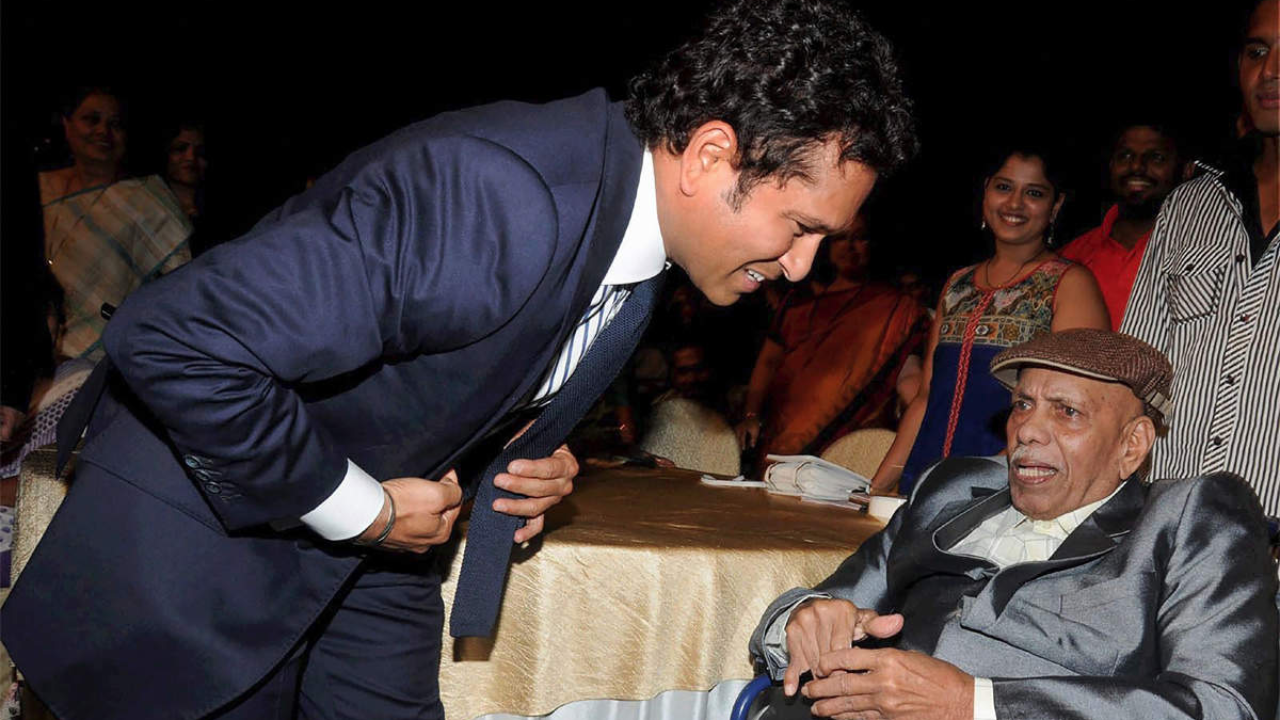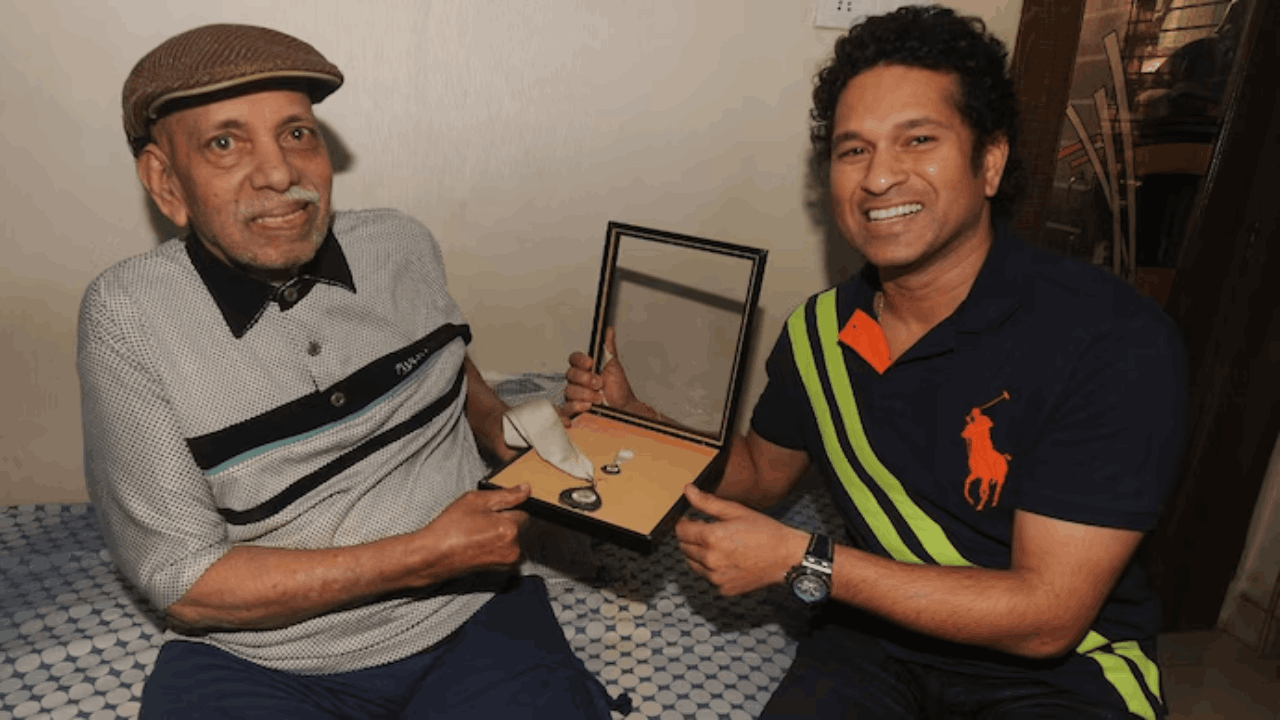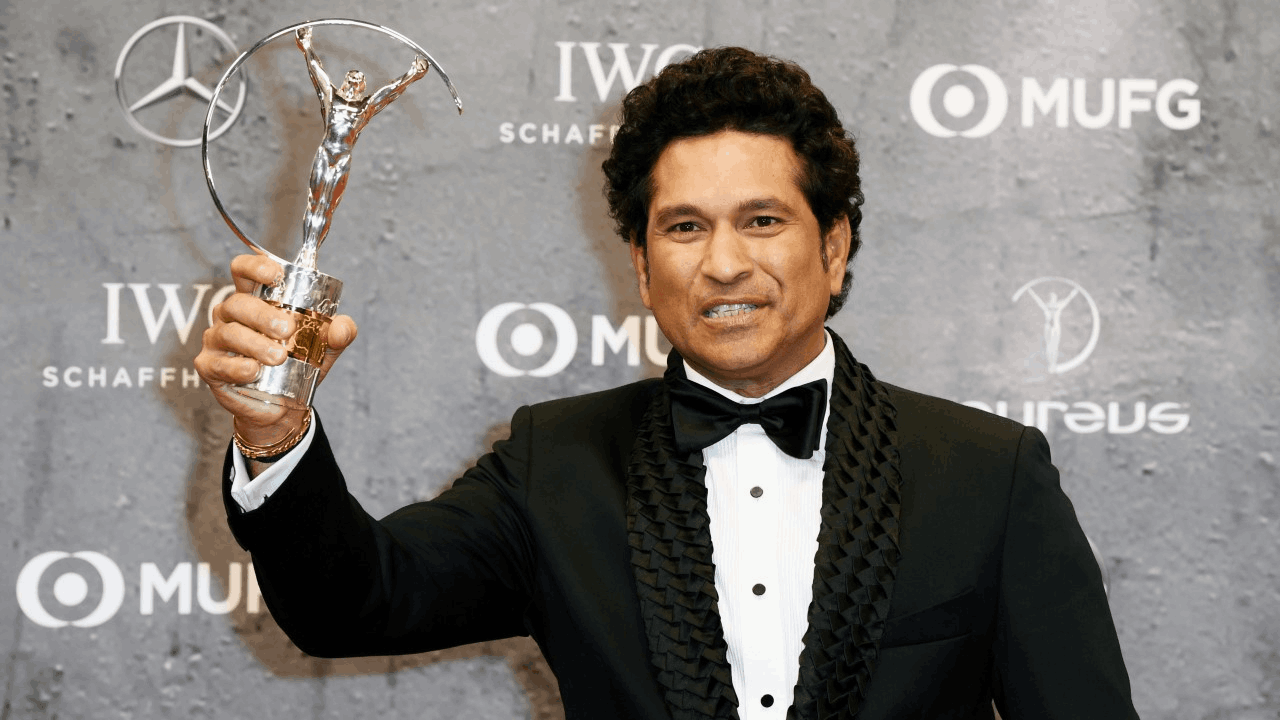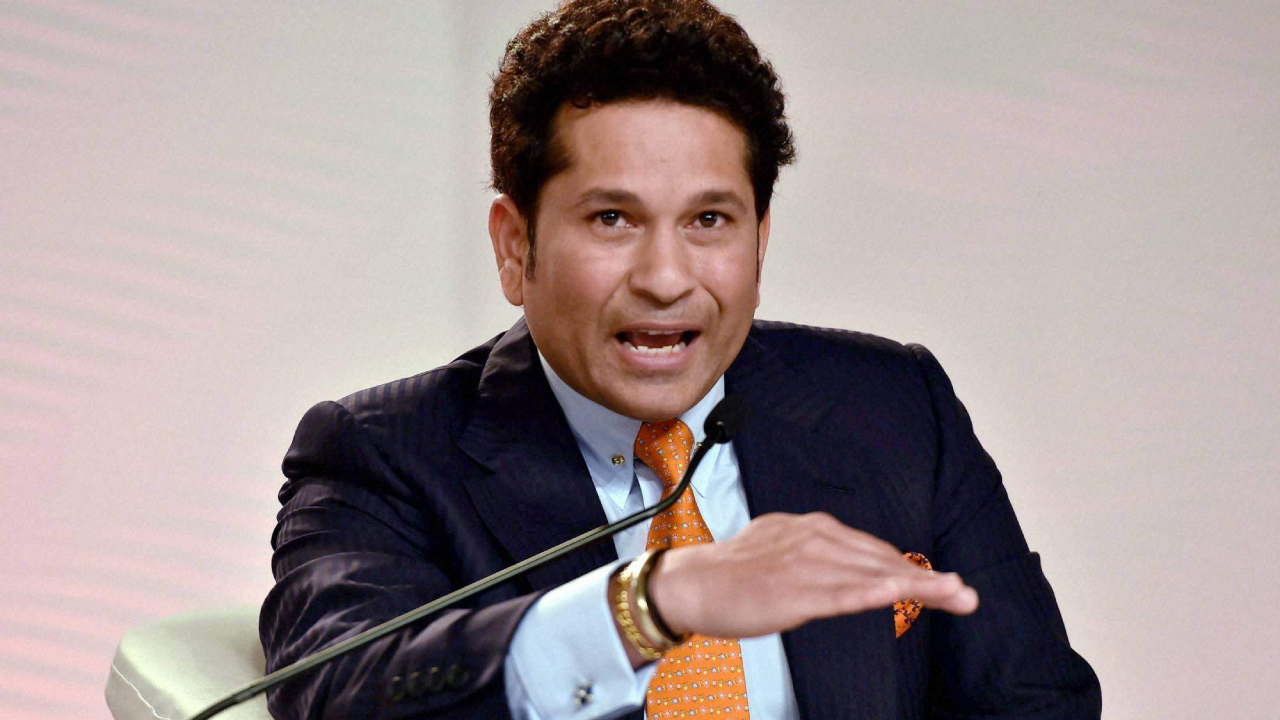
Sachin Tendulkar paid his childhood coach the ultimate tribute on Tuesday (December 3) after unveiling a special memorial for Ramakanth Archerkar at Mumbai's Shivaji Park. The ceremony was attended by several big names including Maharashtra Navnirman Sena (MNS) chief Raj Thackeray as well as former cricketer Vinod Kambli.
At the event, Sachin spoke in length about the impact that Achrekar had on his career and revealed that beyond the game, his biggest learning from his mentor was to value the cricketing kit. Sachin advised young cricketers to follow the same mantra.
"He taught us to value things, we used to do rolling, sprinkle water, put nets, and practice, he trained us. The bond and understanding, a street-smart player, is someone who understands all this, water given to wicket, that’s how our brain used to absorb that information while doing that," Sachin was quoted saying by PTI at the event.
Related News | 
Maharashtra Government To Build Ramakant Achrekar's Statue At Shivaji Park; Sachin Tendulkar Responds

Watch: Sachin Tendulkar reacts to announcement of his life-size statue being installed at Wankhede Stadium
“Please remember your cricket kit, don’t throw it, put it at a particular space, don’t take out your frustration on your cricket kit. I am sitting here because of my kit. I will always pass on sir’s messages to the future generation. We will try," Sachin added.
How Money For 'Vada Pav' Replaced 'Well Played'
Sachin was no different from any ordinary Mumbaiker, who holds a special love for 'Vada Pav,' which is the most popular snack item in the city. The 51-year-old recalled that Achrekar never complimented him with the words 'well played,' and he had to guess from his body language if he was happy with their performance. Tendulkar revealed that Achrekar provided him money to buy a 'Vada Pav' when he was satisfied with his display.
Related News | 
Called All My Friends…: Sachin Tendulkar Recalls 'First Match Of Life'; Reveals Making Scores Of 0,0,1
“Sir used to tell a lot with his eyes. We used to figure out by his body language. He didn’t tell me ‘well played’ ever. Sir didn’t take that chance ever, after a match, he sometimes used to give me money to take a vada pav, that’s how I figured, I must have done something well. There was always that kind of affection. We used to go to his home, were invited by him and his wife, and our favourite diet was mutton curry, pav, lemon and onion. Vishakha used to come and serve us.”
"Sir used to say, roll, and do batting. On the centre wicket, sir used to say, you have to survive for 10 minutes. If anyone in the whole ground catches the ball, I’ll be out. When I would be tired, he used to say, two rounds are remaining, play for more two rounds, and wear the kit and take the two rounds.
“Sir was strict, but whenever I did well, he used to praise me. For someone who dedicated his life to shaping the careers of those aspiring to make a name in the sport, the memorial will serve as a motivation for the next generation of cricketers. Sir had a swiss knife, glue, sand paper, first aid, after match, he used to say ‘let’s do match demonstration’. He wrote in code language, who did what wrong in the match. Once, during batting, a friend was flying a kite, he would stand and see, and take," Sachin added.
How Achrekar Helped Tendulkar Handle Pressure
Sachin explained that Achrekar's students stood out in the Mumbai cricket fraternity due to their ability to handle pressure and superior temprament.
“Ajit (Tendulkar) used to play, and in matches, his observation was, who were not sir’s students, they were tensed. He used to wonder sir’s students were never under pressure.
“Then he realised, sir had a lot of practice matches, and that temperament had been built. I was no exception,” Cricket was always going on under sir. Sir used to ask us to bring nets. Jeetu’s father had given sir a room, for the club’s kit, he told me to use that, and I used to play," Sachin revealed.
Achrekar passed away on 2nd January 2019 at the of 87. He was awarded the Dronachary Award in 1990 and Padma Shri in 2010.

